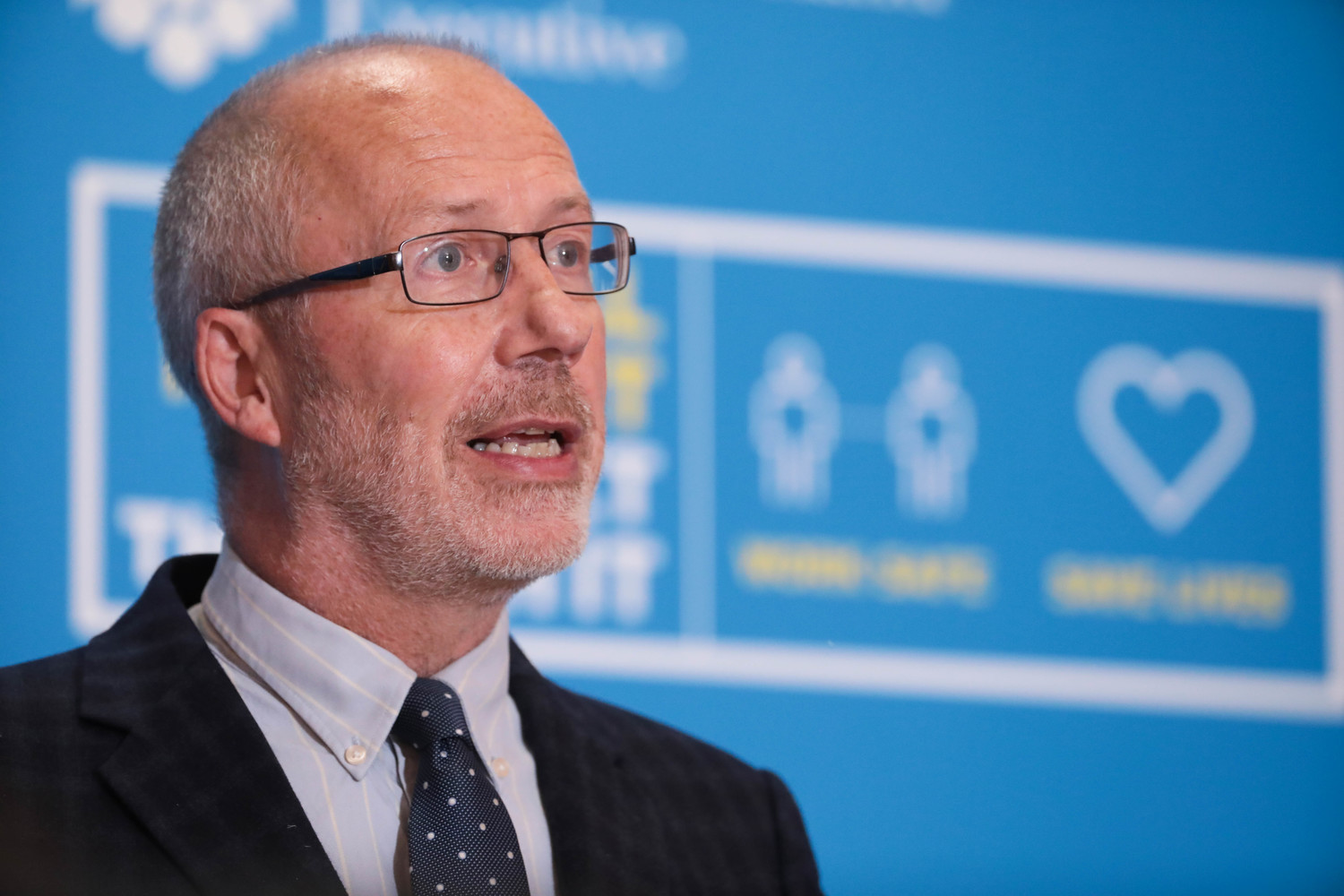
Chief Scientific Advisor Professor Ian Young pictured at a press conference in Stormont. Photo by Kelvin Boyes, Press Eye.
A legal challenge taken by Northern Ireland’s Chief Scientific Advisor, Professor Ian Young, will be heard at the Royal Courts of Justice in London today.
Professor Young is attempting to prevent the General Medical Council (GMC) from investigating his conduct, in respect of what was uncovered during the hyponatraemia public inquiry, by way of a judicial review.
Mr Justice John O’Hara’s hyponatraemia public inquiry report, which was published in January 2018, examined the deaths of five children.
In September 2020, The Detail reported that the GMC had confirmed it was investigating “a number of doctors linked to the inquiry”.
However prior to this, in February 2020, Professor Young’s representatives issued proceedings aimed at preventing the GMC from investigating his actions.
Justice O’Hara found that, following nine-year-old Claire Roberts' death in the Royal Belfast Hospital for Sick Children in 1996, her parents’ “suspicion of cover-up cannot be regarded as unreasonable”.
Alan Roberts, Claire’s father, told The Detail: “The allegations against Professor Young are extremely serious and raise issues which go to the heart of public confidence in our health service and the medical profession.
“I believe this would fully explain why Professor Young is fervently attempting, through judicial review, to block the GMC investigation.”
The hyponatraemia report states that there were multiple instances at Claire’s first inquest, in 2006, where Professor Young “failed to draw key issues to the attention of the coroner” and that he “shifted from his initial independent role…to one of protecting the hospital and its doctors”.
According to Justice O’Hara, Claire’s parents were informed that Professor Young was independent from the trust at the time when he was entrusted with examining the issue of fluid management and the question of whether hyponatraemia was a factor in their daughter’s death.
However, the report adds that this “was not correct in the sense that a person who is employed by a trust cannot be regarded as being independent of that trust”.
In addition, a January 2005 letter sent to Claire’s parents and the coroner which "must" have had “contributions from Professor Young”, contained “highly questionable” content and was “inaccurate, evasive and unreliable”.
The report also says that notes and minutes from Claire’s first inquest “strongly suggest” that neither Professor Young, nor others, explained to the coroner that her hyponatraemia was related to fluid or electrolyte mismanagement.
Justice O’Hara continued by stating that he believed the cause of the hyponatraemia which led to Claire’s death, as found by the 2006 inquest, was wrong.
This determination led to a second inquest, in June 2019, at which Coroner Joe McCrisken concluded that Claire’s “totally avoidable” death was caused by the treatment she received in hospital, not a brain virus, as the Belfast Health and Social Care Trust had argued.
The Department of Health was approached for a comment on this article but did not provide one by the time of publication.
 By
By
